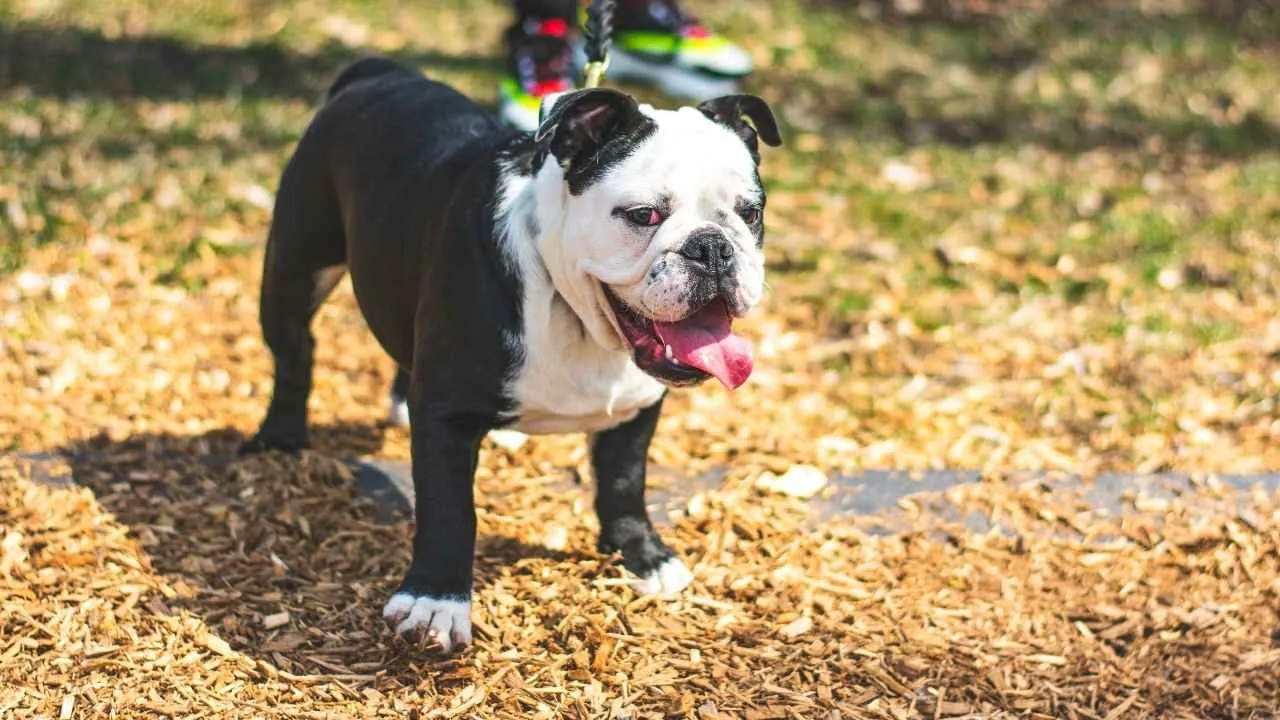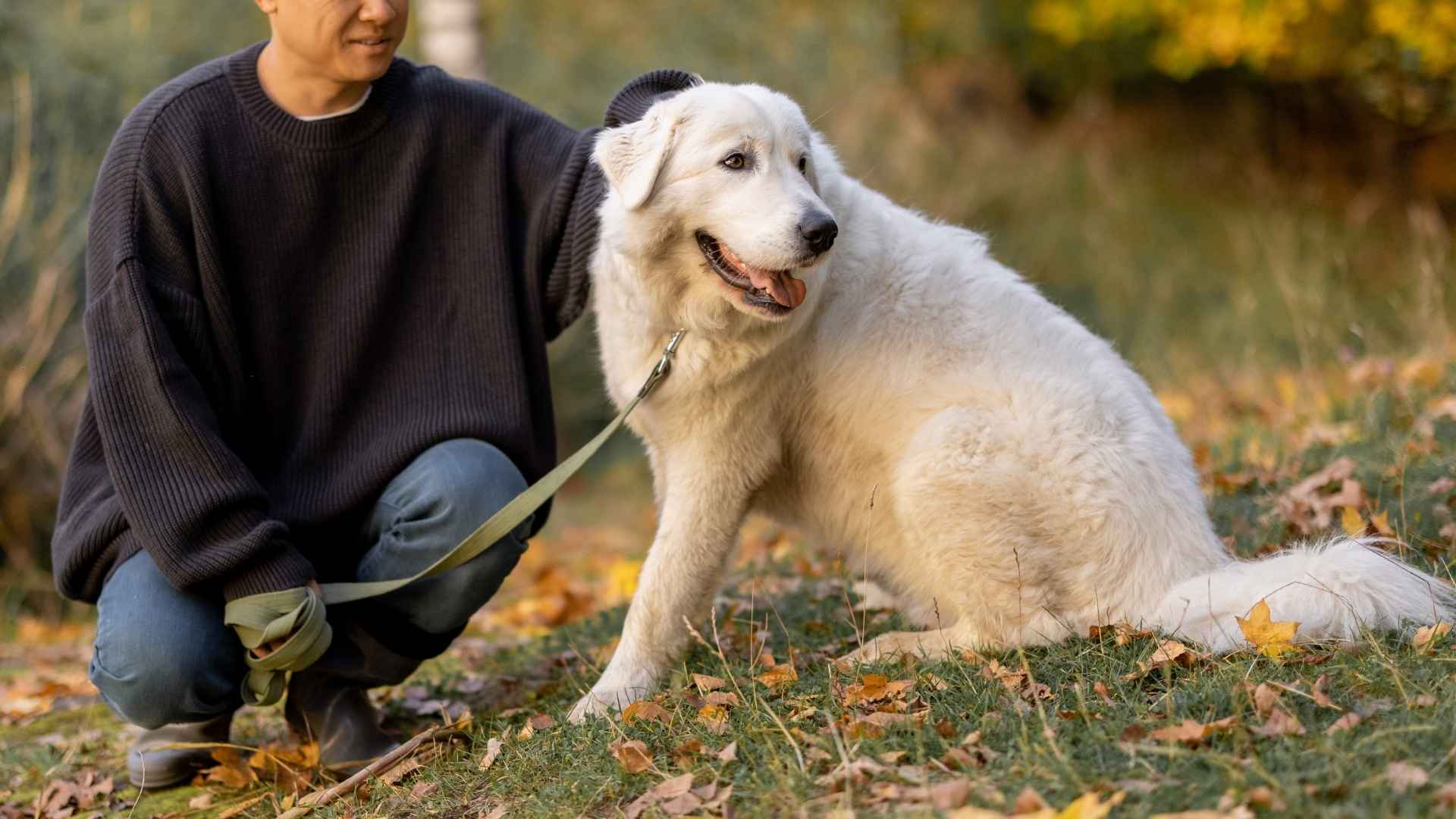When it comes to dogs, some are just content to stay by your side, no matter the temptation to wander. Ever wondered which pups are least likely to bolt out the door at the sight of an open gate? If you’re looking for a companion who won’t make a run for it, you’re in the right place!
These dogs are known for their loyalty and calm demeanor, preferring the comfort of their home over the excitement of the unknown. Whether it’s their strong bond with their family or just a chill attitude, escaping isn’t high on their list of priorities.
No more worrying about your dog making a break for it during walks or when visitors come over. These breeds are reliable and stay put, making them perfect for those who value stability and peace of mind in their furry friends.
Least Likely to Escape Dog Breeds
1. Pug

Pugs might be small in size, but they have big personalities. And one of the best parts? They’re not interested in escaping! These little guys would rather curl up next to you on the couch than dash off on some wild adventure. Known for their friendly and affectionate nature, Pugs are the definition of loyal companions who just want to be with their humans, says VCA.
Why would a Pug want to run away when there’s a comfy spot next to you? They’re incredibly people-oriented and love nothing more than being around their family. Whether you’re watching TV, working from home, or just hanging out, Pugs are happy to stay close.
Unlike some more independent breeds, Pugs have a strong desire to please their owners. This makes them very trainable and reliable when it comes to staying put. If you want a dog who won’t dart out of the door at the first opportunity, the Pug is your perfect match.
Pugs also don’t have the high energy that can sometimes lead to escape attempts. They enjoy regular walks and playtime, but they’re not the type to sprint off in search of excitement. Their laid-back attitude makes them content to stay within familiar surroundings, making them one of the least likely breeds to escape.
Their wrinkly faces and big, round eyes can melt anyone’s heart, but it’s their easy-going nature that keeps them from getting into trouble. Not interested in roaming the neighborhood or chasing after squirrels, Pugs are generally happy to stay indoors, as long as they have their people around.
Fun Fact: Pugs are so loyal, they’ve been known to form “Pug clubs” and even compete in adorable, pug-only competitions. How cute is that?
2. French Bulldog

When it comes to dogs who would rather stay put than run off on a wild adventure, French Bulldogs are at the top of the list. These charming little pups have a personality that’s as cool as a cucumber, making them some of the least likely to escape breeds around.
Unlike some dogs who are always looking for something new to explore, French Bulldogs are happy to stick to a familiar routine. They’re super content with quiet walks, hanging out with their people, and lounging around the house. Escape is just not in their vocabulary, and they are more likely to spend the day chilling than chasing after any excitement.
It’s their easy-going, affectionate nature that makes French Bulldogs so dependable, states Purina. They form strong bonds with their families and, because of their attachment, they don’t have the desire to roam or wander off. For Frenchie owners, this is a big win—they don’t need to worry about their dog bolting out the door or escaping through a cracked fence.
Another reason French Bulldogs are so low-key when it comes to escaping is their lack of high-energy drive. Sure, they love their walks, but they’re not the type to keep running and running. Their short snouts and stocky build make them less inclined to go on endless adventures.
Plus, French Bulldogs are relatively quiet and not prone to barking, making them the perfect candidates for an escape-free life. They won’t get distracted by every noise outside, nor will they try to break free when a delivery person comes by. Their focus is simple: you and the comfort of home.
3. Cavalier King Charles Spaniel

The Cavalier King Charles Spaniel is the perfect example of a dog who’s not interested in escaping. They love being around their people, whether that means snuggling up on the couch or following you around the house. These pups are so affectionate, they would rather stick by your side than go off exploring on their own.
Loyalty is at the heart of the Cavalier’s personality. They form strong bonds with their families and thrive on companionship. Because of this attachment, they’re not likely to make a break for it, even when the door is wide open.
Orvis says that Cavaliers are an energetic and calm breed, and this peaceful nature keeps them from wandering. Their ideal day includes a short walk, playtime, and plenty of lap time. The thought of running off in search of adventure just doesn’t appeal to them.
Their quiet demeanor and lack of desire for independence make them one of the least likely breeds to escape. Whether you live in an apartment or a house with a yard, these dogs are content as long as they’re close to their loved ones.
One of the reasons they don’t have the urge to escape is their easy-going nature. Cavaliers are happy to relax, whether it’s next to you while you work or curled up in a cozy spot. They’re not the type to dart off to explore the world.
4. Golden Retriever

Golden Retrievers are known for their friendly and loyal nature, making them some of the least likely dogs to escape. These happy-go-lucky pups thrive on human connection and would much rather stay by your side than run off exploring. Their love for their family makes them one of the most dependable breeds when it comes to staying put.
What’s great about Golden Retrievers is their natural calmness. Though they are active dogs who enjoy exercise, they aren’t the type to dash off at the first chance. Whether it’s lounging at home or going for a walk, they’re content as long as they’re with their favorite people.
Another reason these dogs are unlikely to escape is their love for routine. Golden Retrievers enjoy structure and stability, which is why they’re content sticking to familiar places and activities. A sudden change or adventure isn’t what excites them; it’s their daily time spent with you.
Britannica says that their smartness, intelligence, and friendly nature make them excellent family dogs, but also mean they’re aware of the boundaries. Golden Retrievers are happy to stay within the confines of their home, knowing that their family’s presence is all they really need.
Despite their size and energy, Golden Retrievers are not impulsive in nature. They’re not going to rush out the door or run off during playtime. With the right training and supervision, they are easy to manage and are happy just to be with you.
5. Shih Tzu

The Shih Tzu is a breed that thrives on comfort, affection, and close companionship, making them one of the least likely dogs to escape. Unlike some breeds that are always looking for adventure, the Shih Tzu is more than happy to curl up on your lap or rest by your side.
These dogs are incredibly attached to their families and don’t have a strong desire to roam. A Shih Tzu is more likely to follow you from room to room, simply because they love being with you. They’re loyal to a fault, which means they don’t feel the need to escape—they want to be where the action is: with you.
While they enjoy a leisurely walk, Shih Tzu are not inclined to break free or explore on their own. Their pace is relaxed, and they’re more interested in bonding with their owners than seeking out a new environment. This makes them an excellent choice for families or individuals who want a dog that stays close by.
Training a Shih Tzu is usually not too challenging. Though they can be a bit stubborn at times, they are eager to please, says PDSA. Once they understand the rules of the house, they’re more than happy to stick to them, ensuring they remain safely inside the boundaries of your home.
Their tiny size and luxurious coat also make them more suited to indoor life. Shih Tzu are not built for long-distance running or intense physical activity. Instead, they’re more likely to lounge in comfort, soaking up attention and cuddles from their favorite humans.
6. Basset Hound

Basset Hounds are the perfect example of a breed that isn’t interested in escaping. While they may have a strong sense of smell and a natural hunting instinct, these dogs are known for their laid-back and calm demeanor, making them less likely to run off.
With their relaxed attitude, Basset Hounds aren’t the type to dart off at the slightest opportunity. They enjoy their home environment and are happiest when they’re with their loved ones. Whether it’s a nap on the couch or a slow stroll around the yard, these dogs are fine staying put as long as they’re with you.
Although Basset Hounds have a strong nose, which is perfect for sniffing out scents, they don’t tend to wander off on their own. They prefer staying close to home and won’t go off on a scent trail without you. This makes them one of the least likely breeds to escape, despite their natural hunting background.
Their slow, deliberate pace means they’re not interested in running off or chasing after things. Basset Hounds are known for their low-energy demeanor, and even when outside, they tend to move at a leisurely pace. They’ll happily follow you around, but they’re not prone to making a break for it.
Training a Basset Hound is relatively easy as long as you are patient. AKC states that though they can be a bit stubborn, their attachment to their family means they’re more likely to stick around when they understand the rules. Positive reinforcement is key to keeping them content and staying close.
7. Bulldog

Bulldogs are known for their calm and loyal nature, making them one of the least likely breeds to escape. They aren’t driven by wanderlust like some other dogs. Instead, Bulldogs prefer a cozy spot in the house, where they can relax and enjoy your company.
These dogs are not only friendly but also incredibly attached to their families. Bulldogs bond deeply with their owners, and they’re more than happy to stick around rather than seeking adventures elsewhere. Their strong sense of loyalty means they’re content staying in familiar surroundings.
Their steady temperament makes them easy to manage, and they don’t typically have a tendency to escape. Bulldogs are more interested in following their family around, snuggling on the couch, or lounging in their favorite spot. Escaping just isn’t on their radar.
Bulldogs also love routine. They’re creatures of habit and prefer sticking to the predictable flow of daily life. This love for consistency means they’re unlikely to wander off or seek out new experiences. Their happiness lies in their steady environment.
Although Bulldogs might look tough and strong, they are gentle and affectionate, says Petplan. Their easy-going nature makes them perfect for people who want a dog that doesn’t require constant attention. A Bulldog would rather stay by your side than venture off on their own, making them a great companion.
Fun Fact: Despite their tough appearance, Bulldogs are known for their love of cuddling, often seeking out cozy spots to snuggle with their owners.
Conclusion
When it comes to dog breeds that are least likely to escape, it’s all about the right temperament, training, and understanding a dog’s natural instinct. While most dogs may be tempted to chase a squirrel or follow a scent, some are simply more content to stick close to their owners. Breeds with low prey drive, like certain Cocker Spaniels, are far less likely to run when properly exercised and engaged. Even highly intelligent breeds like Border Collies or German Shepherds, which have strong herding and protective instincts, can learn not to wander with the right lead, harness, and mental stimulation.
Some dogs run due to separation anxiety, boredom, or an unchecked hunting instinct—traits that are often seen in Beagles, Labrador Retrievers, or hunting mixes. But even a Lab or a Labrador can be taught to stay put through consistent training, short walks, and reward-based methods using treats. If your pup has a high prey drive, regular exercise and supervised socialization can reduce the urge to run away or explore unknown territory. A secure garden and well-fitted harness can lower the risk of escape and keep your pet safe.
Dogs are curious by nature—they want to discover the world, but they don’t have to lose their way. With routine vet checkups to ensure they’re healthy and training to manage behaviors like jumping or reacting to cats, deer, or even the scent of a bear, you can help your dog stay safe. Affectionate, loyal pups thrive in houses where they aren’t left alone for long periods, avoiding the boredom and fear that sometimes leads to escape. With patience and the right approach, even breeds that tend to roam can become wonderful companions who never make you worry about them running off into the country.


